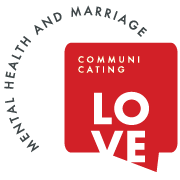Forgiveness is a key element for peace, joy, and happiness in a relationship. Dr. Ted Morter studied forgiveness and how it affects the body. He took blood samples and measured the blood’s level of cortisol, which is a stress hormone. As he took the blood samples, if he could get the person giving the blood to say out loud, “I’m working on forgiving” or “I forgive this person,” and complete the following 5 steps to forgiveness, then when he took their blood sample again, their cortisol levels were lower.
This shows that the process of forgiveness helps us feel less stress. In a relationship, this is important because we are our best in a relationship when we bring our best self to the relationship. So here are the five steps of forgiveness (as outlined by Dr. Ted Morter):
1. Forgive Yourself. Bitterness and resentment are cancerous to relationship emotions. We need to be forgiving. In today’s society, we hear all the time that we need to forgive ourselves. I used to preach and teach that in my counseling. Then I learned that nowhere in the scriptures does it say that we need to forgive ourselves; but the scriptures do say that we should repent, which means to ask for and accept forgiveness. So, I define “forgiving oneself” as more of an acceptation than anything else; accepting that you are truly sorry and will try not to do it again, and that that’s enough. Forgiving yourself is being willing to receive forgiveness. You don’t have to be perfect. When we can accept all of that, we can feel peace about who we are and what we’re doing, and that opens us up for love.
2. Forgive the other person. Forgive them for any harm that he or she may have caused. This can feel hard, but when you think about trying to love those around you, it’s easier.
3. Give the other person permission to forgive you. Generally, this is done personally, in your own head and in your own heart—like saying a prayer. You talk to that person (again, usually just in your mind), telling them that you give them permission to forgive you.
4. See the good in the situation. What is the lesson that you learned from the situation? It’s difficult at times where we feel we have really been wronged or betrayed. But as we let go of that anger, sadness, and whatever other feelings we experienced from the situation, we can better see how we learned and grew from it.
5. Be thankful. As you allow forgiveness to take effect and love to come into you, you should express gratitude for the lesson that you learned and that you got through it. Be thankful for the forgiveness process and how it has helped you feel love more in your life. Then refocus on the future.

So, what is affecting your life? You need to identify a situation, action, or person you feel needs to be forgiven. Think of an experience from the past which comes to your mind often. This is a good meditative exercise; just ask yourself what you need to forgive—whether it’s a situation, an action, or a person—and allow God’s grace to come in and bring healing for that.
As you remember your feelings, thoughts, and emotions on the subject, then go through the five steps. You can overcome those negative experiences and feelings from the past as you carefully identify and think through them. That will bring peace into your life.

Knowing You’ve Fully Forgiven
One day, my family asked a really good question: When you think about a situation and you still feel frustration or anger toward a person or the situation, have you really forgiven?
After lots of discussion, our conclusion was, if you still are triggered into those feelings, there are still more layers of forgiveness that need to occur. More healing can happen. When you truly have forgiven, you have then learned all the lessons. If you keep going back in your mind to situations of betrayal or anger, there are still more lessons you can learn from the experience.
That’s part of the trauma work I do with my clients; when they write out the details, then peace and healing come. If it’s not all there, there are more details to be understood and resolved. The more we can forgive, the more peace we can experience and love we can feel.
If you want a more loving relationship, forgive each other. And forgive those around you, because even if the situation has nothing to do with your spouse, how you feel as an individual—if you’re happy and at peace—makes a difference in your relationship.
If you would like more information on forgiveness as explained by Dr. Ted Morter, please visit morter.com.
Meet Rod

Rodney Limb has always enjoyed listening to people and helping them work out problems and struggles. As a Licensed Clinical Professional Counselor (LCPC), Licensed Marriage and Family Therapist, and a Nationally Licensed Hypnotherapist for over 20 years, he has helped hundreds of couples create a happy and thriving marriage out of disaster. He also provides counseling for anxiety, depression, stress, PTSD, and overcoming various behavioral addictions.
A Deeper Look into Spiritual Truths
Yes, it helps to forgive each other and forgive ourselves, but forgiveness is so much deeper and easier when we involve God. We can feel so much more peace. Involve God in every step of the process:

- When trying to forgive yourself, ask God for forgiveness and accept His forgiveness. He can forgive you—and He’s perfect—so you can forgive yourself. If needed, ask Him for strength to forgive yourself. Accept Christ’s sacrifice in your own life; it will change you.
- When forgiving others, remember God loves all of us. Pray for His help to feel some of that love He has for others. And remember, God will judge fairly, so you don’t need to worry about justice; your job is to forgive.
- Remember that Christ suffered for us; those you hurt don’t need to suffer. Give them permission to accept Christ’s suffering and forgive you.
- We are here on Earth to learn and be tested. God wants us to learn from our mistakes. You can ask God to help you learn from your experiences and recognize the good in them.
- Thank God for Christ’s sacrifice. Thank Him for what you’ve learned.
As we do all that, having trust in God, we can have peace in God. And as we have peace, then that opens us up for love. The more love we can feel, the smoother our relationships will be, and the easier it will be to forgive going forward.

